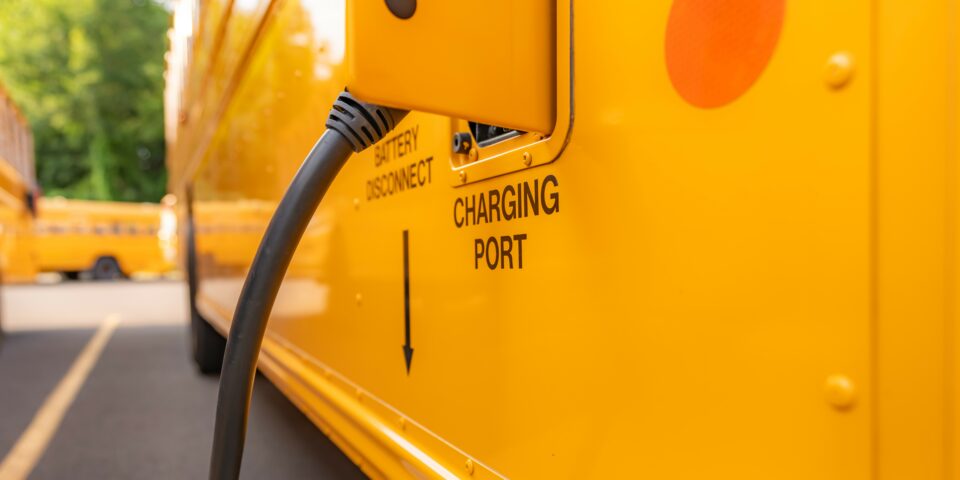Prince Edward Island’s recent decision to pause plans to buy electric school buses following Lion Electric’s financial troubles is a disappointing blow to local climate efforts.
The Island government faced a tough choice when Lion Electric, the sole bidder in its latest electric bus procurement, entered creditor protection last month. Left without a reliable supplier, P.E.I. turned to buying more diesel buses to ensure kids got to school.
It’s a discouraging setback. However, while one manufacturer’s challenges may raise concerns, they should not overshadow the benefits of electric school buses—nor scare off other interested provinces, like New Brunswick, from investing in them.
A bump in the road
Lion Electric’s issues are rooted in business missteps, not the viability of electric school buses.
The bus manufacturer has cited the slow rollout of federal subsidies as one of its major challenges along with the “volatility” of the electric vehicle market.
Simply put, Lion went all-in on selling its vehicles for cheap but struggled with delays in getting buses into communities, manufacturing issues and a lack of support for its customers. Employees have reported disorganized vehicle development, insufficient road tests and massive cost overruns with the company.
Ideally, Lion will be able to stay afloat after it restructures. But it also isn’t the only company making electric buses. High-quality options from well-established bus companies like Blue Bird and IC Bus are already on the road, performing well in places like British Columbia and the United States.
The better option
Let’s not lose sight of why electric school buses matter.
Lion’s business issues aside, electric school buses remain a reliable, safe solution that can transform transportation systems for the better—despite undue focus on individual failures.
A recent CBC story about Lion’s business woes highlighted a Lion bus fire in Ontario but didn’t note that electric vehicles are significantly less likely to catch fire than gas or diesel ones—1 in 38,000 versus 1 in 1,300. The Ontario school bus fire also resulted from a power-steering problem, not the battery.
And not only are these buses safer, but they also have big environmental benefits.
Diesel buses spew pollutants like fine particulate matter (PM2.5), ground-level ozone, nitrogen dioxide, carbon monoxide, sulphur dioxide and volatile organic compounds like benzene, a known carcinogen.
Meanwhile, replacing a single diesel bus with an electric one reduces planet-warming emissions by about 20 tonnes yearly. In fact, electrifying the entire New Brunswick school bus fleet would eliminate more than 22,500 tonnes of greenhouse gas emissions yearly—the equivalent of 150 blue whales.
The benefits are too big to ignore in the face of rising health concerns linked to air pollution and climate change.
Keep the wheels on the bus rolling
Despite this setback, P.E.I. should be applauded for being an early adopter of electric school buses. Hopefully, the province will continue working toward its fleet electrification goal by 2030 with more reliable suppliers.
Meanwhile, provinces like New Brunswick, which hopes to electrify its school bus fleet by 2035, should learn from the Island.
With a strong, phased procurement plan and partnerships with reliable suppliers, the New Brunswick government and others can ensure they learn from P.E.I. and invest in our kids and a healthier, more sustainable future.
Danielle Smith has over 15 years of experience in the educational and environmental sectors and is the Conservation Council of New Brunswick’s director of education and engagement.
Written with help from Ecology Action Centre’s Abby Lefebvre and the Conservation Council of New Brunswick’s Erinn Sharpe.

